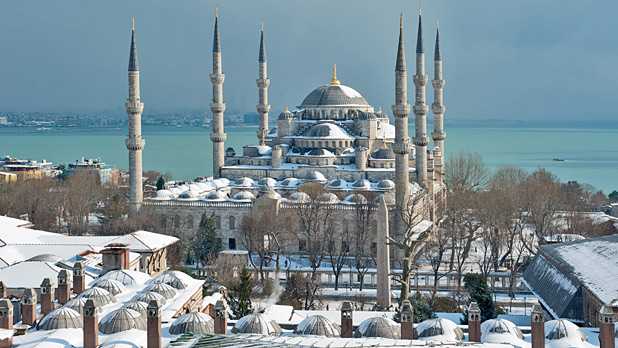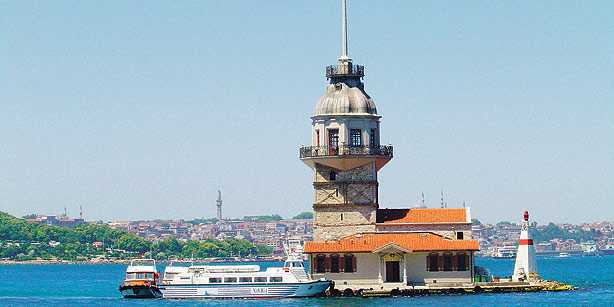VISITS abroad by heads of state are different to those by heads of government. They are a symbolic endorsement of good relations between countries; prime ministerial visits are about the nitty-gritty of politics — trade, military agreement, and foreign policy decisions. That is as true for Turkey as any other country. The visit to Iraq by its president, Abdullah Gul, is therefore something of a landmark. No Turkish head of state has visited Baghdad in over 30 years, although Prime Minister Recep Tayyip Erdogan was there for talks with his Iraqi counterpart Nuri Al-Maliki last July.
That, however, was a political initiative and even then the Kurdish issue ensured that relations between the neighbors remained fraught. A year ago, Ankara dispatched thousands of troops into northern Iraq to crush militants from the Kurdistan Workers’ Party (PKK) who used it as a base for their campaign of violence against Turkey — a campaign that over the past 25 years has resulted in 40,000 people killed. Since the offensive, there have been other Turkish raids.
Although the Kurdish issue is far from resolved, President Gul’s visit is a clear indication of warming relations. It is a change based on mutual need. Even though a few months ago, Turkey still felt that Iraq was failing to stop the PKK, it knows that with American troops preparing to leave, it has to cooperate with Baghdad if the PKK is to be neutralized. Likewise, Iraq knows that it has no chance of normality if the PKK continues to threaten Turkey and the Turks respond with cross-border attacks. The stability of Iraq requires good relations between Baghdad and Ankara — and will require it all the more when US troops leave.
Turkey has other concerns, not least the well-being of the Turkmens of northern Iraq. It is complex situation. That the government of one country should see itself as the protector of a community in the country next door has obvious dangers; local disputes could end up poisoning national policies — and in the case of Iraq, the Kurds and the Turkmens are anything but friends. Kirkuk, one of the main centers of the Turkmen population but which the Kurds want in their autonomous region in a new federal Iraq, could be such a poison.
Turkey, not least because the city is also the center of northern Iraq’s oil wealth, does not want to see it fall into Kurdish hands. But then neither does Prime Minister Al-Maliki who is busy building alliances to ensure a strong central government following parliamentary elections later this year.
His vision ties in neatly with Turkey’s that likewise sees a strong central government in a united Iraq as the best guarantee of dealing with the PKK and lowering Kurdish ambitions. But that is not certain and elections are still some way off. All eyes in Ankara (and Baghdad) will, therefore, be on the much-talked about grand Kurdish conference expected soon in northern Iraq at which the PKK will be asked to end its violence against Turkey. If it does so, it would spell a much-needed end to the troubles in southeast Turkey. It would also remove any impediment to normal relations between it and Iraq.
That is what President Gul’s visit seems to herald.
US striking new tone with Tehran
THE West’s overarching aim of preventing Iran acquiring an atomic bomb is best achieved by a “grand bargain”, offering Iran security but making it part responsible for the security and stability of the region, said the Financial Times in an editorial yesterday. Excerpts:
Barack Obama’s overture to Iran, delivered by video on the eve of Monday’s Iranian New Year, is a smart move, tone-perfectly delivered, and a clear departure not just from George W. Bush’s bellicose attitude but the visceral animosity that has bedeviled relations between Washington and Tehran since the Islamic Revolution of 30 years ago.
His use of the formal title of Islamic Republic implies US recognition of the revolution and abandonment of regime change. The emphasis on rights and responsibilities — the sort of discourse tailored for, say, China — suits Iran’s sense of entitlement and ambition to be acknowledged as a regional power. The address is well aimed, furthermore, not just at Iran’s leaders but at the Iranians.
The more recent history, in which Iranians feel under US and Western siege, has enabled the theocrats to consolidate their puritan hegemony and their dense network of material interests. But this artificial national unity cracks and debate flourishes when Iranians sense the West is willing to engage with them. Not for nothing were the mullahs discomfited by the advent of Obama: He faces them with choices.
But the US and Europe, as well as Israel and the Arabs, face choices too. After the enlargement of Iranian influence that followed the toppling of Saddam Hussein’s regime, the resolution of most conflicts in the region — Iraq itself, Afghanistan, Israel-Palestine and Lebanon — needs at least Tehran’s quiescence. The West’s overarching aim of preventing Iran acquiring an atomic bomb is best achieved by a “grand bargain”, offering Iran security but making it part responsible for the security and stability of the region. If we ever reach that point — a big if — the US and its allies will have had to decide if they can accept that Iran has reached technological mastery of the full nuclear fuel cycle.






